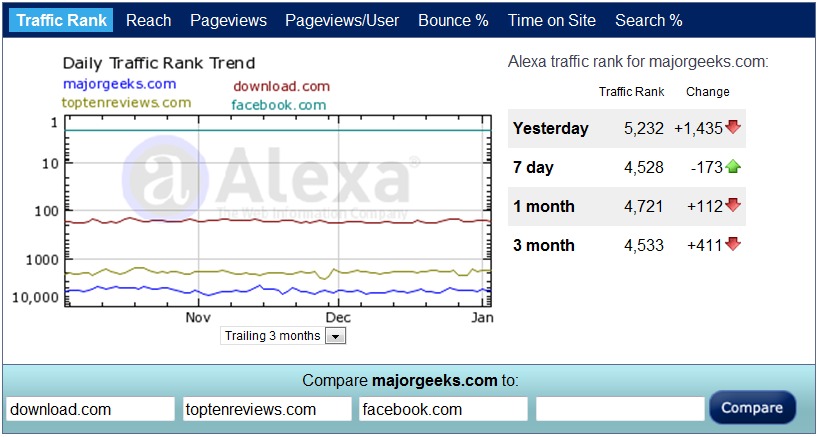 In the digital product space, successful affiliate programs can generate between 15 and 20 percent of all sales. So how do you mine your affiliate pool to find the best, most successful affiliates?
In the digital product space, successful affiliate programs can generate between 15 and 20 percent of all sales. So how do you mine your affiliate pool to find the best, most successful affiliates?
In order to strategically evaluate each applicant, you need to create a set of specific and consistent evaluation guidelines. Doing so will increase the likelihood of affiliate success and is pivotal to the growth of your affiliate program.
So, before you accept another affiliate into your program, follow these six guidelines to see if the partnership will be a success:
1. The Domain Game
Who is the owner of the website domain? Many times affiliates apply for your program using a “free domain,” which is a common practice with bloggers (i.e. googleblog.blogspot.com). If the website domain is not owned by the applicant, it’s difficult to determine whether the domain can legally promote your products. There are tools, such as netsol.com or whois.com, that check the owner of a domain name and let you verify the information submitted on an affiliate’s application.
The age of the domain also provides insight into how long an affiliate has been doing business. The length of time a domain is pre-paid can be an indicator of stability. Spam sites are often registered for short periods of time.
2. Is Traffic What It’s All About?
How much potential traffic does the affiliate have? Ideally, potential affiliates will have a substantial amount of traffic or a low Alexa score. For example, YouTube has an Alexa score of 3, which means it’s the third most popular website ranked by Alexa. In comparison, Majorgeeks.com has an Alexa score of 4,700.
Alexa is a Web information company that evaluates websites based on the number of unique visitors reported by users of their toolbar. The lower the Alexa ranking, the higher amount of incoming traffic to an affiliate’s website. However, don’t rule out smaller niche sites based strictly on high Alexa rankings. When it comes to conversion, the quality of the traffic can be just as important as quantity.
Evaluating potential traffic can help to determine an appropriate commission structure, but Alexa rankings also help estimate an affiliate’s potential sales volume.

3. What’s Email Got To Do With It?
What email address does the applicant use? A generic or free email domain, such as Gmail, Hotmail and Yahoo, is a potential red flag in an affiliate application. Ideally, an affiliate’s email domain should match the website domain, which is a strong indicator of validity.
Free or generic email domain applicants often sign up as an affiliate only to obtain a quick discount. In cases where an email domain does not match the applied website domain, you should always verify ownership of the domain.
4. Content Is King
What content is on the affiliate’s website? Ask yourself if the content is valuable to your customers. Does the website have offensive or adult-oriented content, or does the website use gambling or pornographic websites as traffic sources? These are some of the questions to consider before approving a potential affiliate.
Here are the three main types of affiliate website content and easy ways to evaluate each.
-
Generic
– A website that promotes personal interest topics. The affiliate has had success using the product and is now interested in reviewing it for other consumers. When evaluating the website, the Alexa ranking can indicate potential sales volume. If the website has a large amount of traffic, there is a strong potential for success.
-
Relevant
– A website is completely focused on a topic or category that perfectly matches your products. This affiliate is considered an “industry expert” on this topic, and many consumers visit the website for knowledge regarding the category. InfoSpyware.com is a good example of “relevant”. The content on this website is directed towards malware and virus safety. Thus, this website is a great fit for an anti-virus or anti-malware product. When an affiliate has “relevant” content, the Alexa ranking plays a smaller role in affiliate approval.
-
Under Construction
– An incomplete or dead website. In this case, don’t approve affiliates until the content is fully updated. Also, the affiliate’s application should remain in review for about a month to ensure the affiliate does not change the content or style of the website to something inappropriate for your products. However, the content may also develop into relevant or generic over time, so don’t completely rule it out.
5. Products And Cookies
What other products is the affiliate advertising? When looking through the content of an affiliate’s website, pay attention to advertised products and how cookies are dropped throughout the site. As a vendor, envision the potential for product banner placements on the website and where the affiliate could promote your product. Positioning your product where it is most likely to convert is most important and no one knows your product better than you!
Cookie awareness is important because there are affiliates who drop hidden pixels. Certain affiliate programs consider it affiliate fraud when an affiliate drops a cookie without the user showing interest in a product. The affiliate is not qualifying the traffic coming to the vendor’s website and is only interested in monetizing on the volume of traffic the website produces. Preferable affiliates point qualified customers to the correct products. Make sure you let your affiliates know that pixel dropping is not an acceptable element of your program.
6. A Reseller Dressed In Affiliate’s Clothing?
Could this affiliate application actually be a reseller application? What’s the big difference anyway? Resellers buy products at a discount and sell to consumers at full price, sometimes through a brick-and-mortar store. Affiliates sell products at full price through their website and receive a commission from the vendor for every sale. Also affiliates generate sales through their website, while resellers actually have direct contact with the consumer.
It’s up to you to decide if your affiliate marketing channel is a good fit for each applicant. Many times small PC repair companies apply as affiliates when they should be applying as resellers, but they don’t understand the difference.
Keystone
By evaluating the above affiliate attributes you can discover the affiliate’s potential to be a significant contributor to your program.
What other tricks of the trade do you use to mine your affiliate applicant pool?
K.C. Motamedy contributed to this blog post.